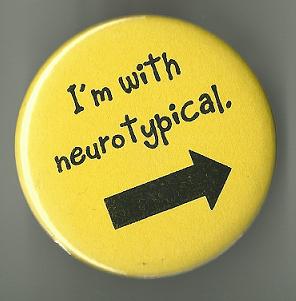In the process of being and becoming an academic, many people are employed on temporary, insecure, part time, ‘zero hours’, and under-paid contracts by universities in the UK. This blog is about one aspect of feeling like an imposter while I was doing academic work on these kinds of contracts, and is part of a bigger project about re-thinking imposter syndrome in higher education as a public feeling (Cvetkovich 2007, 2012).
Imposter syndrome refers to feelings of not belonging, of out-of-place-ness, and the conviction that one’s competence and success are fraudulent, that it is only a matter of time before being found out. Feeling like an imposter involves the suspicion that signifiers of professional success have somehow been awarded by mistake or achieved through a convincing performance. The sensation of having somehow ‘tricked’ students, colleagues, employers, interview panels, peer reviewers… combines with the fear of being unmasked, not only as incompetent, but as a fraud as well. So imposter syndrome implies underlying feelings of inadequacy and deficiency, but also conveys a particular felt-as inauthentic or fraudulent relationship to indicators of belonging and achievement in institutions of higher education.
In popular discourse imposter syndrome is often framed as an individual problem, to be overcome. I want to move away from understanding ‘imposter syndrome’ as a personal problem of faulty self-esteem inviting individualized coping solutions, and see what happens when we re-think imposter syndrome as a public feeling. Following Cvetkovich this involves: 1) situating feelings of imposterism in socio-political context and in relation to intersections of class, race, and gender, 2) asking what these feelings can tell us about the structure and governance of academic labour, and 3) thinking of feeling like an imposter as a potential source of action and site of agency.
Here I am focusing on the second aspect of imposter syndrome as a public feeling, and doing so in relation to being on temporary, insecure, contracts in UK Universities. I’m interested in how these contracts, and other aspects of the neoliberal and entrepreneurial structure and governance of higher education, can prevent academic workers from doing the work that universities ask for.
I lived in my friend’s box room for twelve months. The university teaching and research jobs that I was doing didn’t pay enough to cover rent in the city I lived and worked in. I was working as a ‘guaranteed hours’ tutor (guaranteed ten hours of work over the semester), and as a research associate on a casual (six months, ten hours a week) contract, and due to a series of bureaucratic complications my wage was delayed for the first four months. And I felt lucky to have this work. Like it was more than I deserved somehow. Like I wouldn’t have it if only my colleagues and employers knew how shoddy my work really was.
The contracts I was on at the time did not enable me to access the resources I needed to do the work. I couldn’t access university computers or printers. I could go and work in the library, but I couldn’t borrow books or use the internet there, and I didn’t have access to the institutional subscription to academic journals. For much of this time I did not have a university email address.
I did have an institutional affiliation, and I was doing work that led to publication. I wrote a book. In time this was followed by more – and more secure – academic work. Enabled by endlessly supportive colleagues and by my whiteness and middle-class status, my belonging and Russell Group background. I had a book launch, and the book won a prize. I got a new job, it was temporary (six months again) and part time (0.7 this time) but I was a Lecturer now, with an email address and a staff card that let me swipe into the building, I had library and journal access, I could use The Printer. I had more access to the resources I needed to do my job, and I had what felt like more institutional legitimacy – I had a desk!
During this time I felt most like a fraudulent, inadequate imposter during those spectacular, celebratory, visible scenes of something like my ‘arrival’ in academia, that in some ways enacted belonging and entitlement. I felt closest to belonging when the mundane materiality of the institution supported my presence; when I could print, email, swipe my staff card, and get paid at the end of each month. I put pot plants on my desk and I went to staff meetings.
Staff meetings regularly included announcements from senior management, including the need for our department specifically to be more active in income generation, the need for everyone to apply for more research grants, to make more funding bids. When I gathered together documents and research proposals and tried to apply for research grants, reading websites and eligibility criteria for different funding councils and different trusts I came up against a wall (Ahmed 2017). Many eligibility criteria stipulated that applicants must be employed on a contract that will last the duration of their proposed research project. Two months into a six-month contract I was not eligible.
This (frustrating, de-motivating) experience, of being told to do something by the university and being unable to do so because of my contractual working conditions at the university made me think. I think that the form of university governance that locates academic workers as ‘income generators’ can be the same form of governance that prevents academics from doing such work, from doing related work. Ahmed (2017) has shown how diversity workers in higher education are appointed by universities and blocked by universities from doing the work that they are appointed to do. When the university asks that you do something the terms of your employment can also prevent you from doing that something.
Feeling like an imposter (not belonging, inadequate, fraudulent, out of place, not really an academic) doesn’t appear surprising under these circumstances. One way that we might understand imposter feelings in academic work as public feelings might look like this: Not having access to the resources necessary to do the work the university asks you to do = feeling like an imposter.
Maddie Breeze
Early Career Researcher
References:
Ahmed S (2017) Living a Feminist Life Durham, Duke University Press
Cvetkovich A (2007) ‘Public Feelings’ SAQ: South Atlantic Quarterly 106(3)459-68.
Cvetkovich A (2012) Depression: A Public Feeling London: Duke University Press.
About the author:
Maddie is interested in gender, feminist research, queer theory, emotional labour in academic work, and the institutionalization of ‘diversity’ in educational contexts. Maddie has published on imposter syndrome as a public feeling in feminist academic work in a forthcoming edited collection Feeling Academic in the Neoliberal University: Feminist Flights, Fights, and Failures forthcoming with Palgrave. She is a Lecturer in Public Sociology at Queen Margaret University, and will be Chancellor’s Fellow in the School of Education, University of Strathclyde from September 2017. Her PhD (2014, Sociology, University of Edinburgh) ethnography on roller derby is published with Palgrave and was awarded the 2016 BSA Philip Abrams Memorial Prize. maddiebreeze@gmail.com @maddie_breeze









